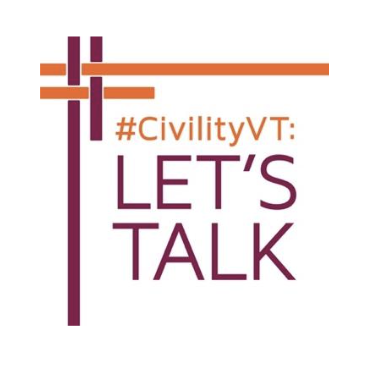WHAT DOES CIVILITY MEAN TO YOU?

Civility means different things to different people, although most land on certain ideas. Before we dig deeper into exploring the meaning of civility, let’s define some key terms.
The dictionary defines civility as “formal politeness and courtesy in behavior or speech” and “polite remarks used in formal conversation.” While these definitions imply that civility is simply about being polite, the term typically means so much more in practice.
The word civility comes from the Latin root civilis, meaning “befitting a citizen.” The implication that civility is about adhering to expected norms within a community is a comfort to some and repressive to others. And while politeness may be the baseline, this deeper connection to ‘citizenship’ or membership in a community suggests a much wider array of potential expectations.
The Merriam-Webster dictionary defines discourse as a “formal, orderly and usually extended expression of thought on a subject,” as well as “a mode of organizing knowledge, ideas, and experience that is rooted in language and its concrete contexts.”
In practice, we often think of discourse as rich conversation featuring well-crafted thoughts and opinions. When combined with civility, we end up with civil discourse, which is substantial conversation about important things adhering to a baseline level of respectful expression.
Merriam-Webster defines deliberation as “the act of thinking about or discussing something and deciding carefully,” or ” a discussion and consideration by a group of persons of the reasons for and against a measure.”
Deliberation is somewhat synonymous with with civil discourse. The intentionality and carefulness of deliberation ultimately fosters an atmosphere of meaningful reflection, shared learning, consideration, and growth. Deliberation can also help groups to reach more fair, efficient, stable, and wise decisions.
What do various experts say about the concept of civility?
Bybee provides a simple yet comprehensive explanation of civility here. Do his interpretation resonate with you? What changes would you make to his definition? Let’s shift to another interpretation, which offers a different, more inherently skeptical perspective. Which quote aligns more closely with your experience?

Let’s take a moment to reflect on the above quote. Itagaki centers the important question of who gets to say what is and is not civil, particularly given power differences. Does this imply that we should have no shared understanding of civility but rather it is up to us individually to establish and adhere to a baseline? Where does that leave us in the current political climate with significant polarization? How do we agree to terms (i.e., a ‘social contract’) when engaging with others?
What perceptions of civility and its (un)importance do you hold? In your opinion, are or should there be more universal standards? Contextual but shared standards? None?

